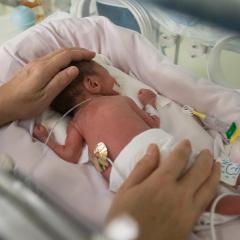New insights into how our immune system fights back against infection and drives diseases such as auto-inflammatory diseases, arthritis and gout have been revealed in a study by University of Queensland researchers.
Associate Professor Kate Schroder and Dr Mercedes Monteleone from UQ’s Institute for Molecular Bioscience led the study, which investigated the mechanisms behind the release of an important protein involved in the body’s inflammation response.
The protein – interleukin-1beta – is responsible for key hallmark characteristics of ‘feeling sick’, such as fever or loss of appetite, and is released when the immune system senses infection or disease.
Dr Schroder said the research gives us a deeper understanding of diseases driven by interleukin-1beta, such as auto-inflammatory, autoimmune and arthritic diseases, including gout.
“While we already understand how this protein triggers inflammation, until now, we’ve not understood how immune cells are prompted to release this protein in the first place to drive those inflammatory responses,” Dr Schroder said.
“Our discovery of a previously unknown mechanism by which immune cells secrete interleukin-1beta is the first step in explaining why this protein is produced so frequently in many inflammatory diseases.
“Because many of these diseases are treated with agents that inhibit the function of this protein, it’s important that we fully grasp this process.
“The study may ultimately lead to new strategies for therapeutic intervention in diseases driven by the release of interleukin-1beta.”
Earlier this year, Dr Schroder and collaborators discovered an off-switch for an inflammatory pathway that drives many different diseases.
The study was published in Cell Reports and supported by The University of Queensland Foundation, the National Health and Medical Research Council of Australia, the Australian Research Council and the Australian Cancer Research Foundation.



